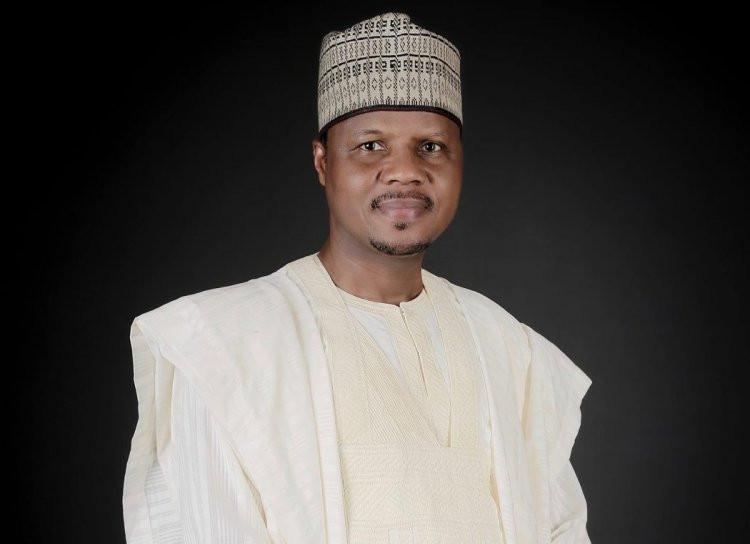
JUST IN: Nigerian Court Sentences Guard and Cook to Death by Hanging for Brutal Murder of Ex-Katsina Commissioner

A thunderous silence fell across the courtroom as the presiding judge read out the sentence that would etch this case into the pages of Nigeria’s most disturbing criminal chronicles. In a chilling climax to a months-long murder trial, the High Court has handed down a death sentence to two domestic workers—a guard and a cook—convicted of the brutal and calculated killing of former Katsina State Commissioner, Dr. Ibrahim Maidoya, a respected statesman whose life ended in horror within the walls of his own home. The conviction, handed down in Katsina State on Tuesday, left no room for leniency, with the judge citing overwhelming evidence, callous intent, and the betrayal of trust in his damning pronouncement.
The atmosphere in the courtroom was electric, yet tense. Family members of the late commissioner sat in pained silence, many with tear-streaked faces as the final verdict thundered through the walls. The accused, identified as Abubakar Lawal, a security guard, and Hassan Dauda, the family’s cook, showed no emotion as the judge declared, “This Honourable Court finds you guilty as charged. For the offence of conspiracy and murder, you are hereby sentenced to death by hanging until you are pronounced dead by a certified medical practitioner.”
The gruesome case began almost a year ago when news broke that Dr. Ibrahim Maidoya had been found murdered in his private residence in Katsina GRA. A man admired for his tenure as Commissioner for Finance and Economic Development, Dr. Maidoya had retired into a quiet life away from politics. But that peace was shattered in an act so brutal, it sparked outrage across the state. His lifeless body was discovered by relatives after he failed to answer phone calls or come out for his usual morning walk. Authorities were immediately alerted, and a homicide investigation was launched.
What unfolded stunned the nation. Investigators found signs of forced entry in the rear section of the house. Surveillance footage later obtained showed two hooded figures moving within the premises at odd hours, and further inspection of the footage identified them as two of the commissioner’s trusted staff—his night guard and cook. The suspects were arrested within days and allegedly confessed to the crime after intense interrogation, although they would later recant the confessions during trial, claiming they were coerced.
According to the prosecution, the motive was greed. The pair had plotted to rob the commissioner of what they believed was a large stash of money kept in his residence. Believing he had recently received a huge payout from government pensions, the duo conspired to break into his bedroom, subdue him, and force him to reveal the location of the money. But things took a gruesome turn when the commissioner resisted. The attackers bound his hands and feet, gagged him, and beat him to death using a heavy iron rod from the house’s gate latch system.
The medical examiner who testified during trial revealed that Dr. Maidoya died from blunt force trauma to the head and internal bleeding. Multiple fractures were found across his ribcage, along with deep contusions. It was a slow, painful death, made more horrifying by the fact that it happened in the very place he believed he was safest—his home.
In a gripping trial that spanned several months, the state prosecution team called over 20 witnesses, including forensic experts, neighbors, domestic staff, and law enforcement officers. Video evidence, DNA samples, blood stains on the defendants’ uniforms, and recovered stolen items—all linked the suspects directly to the scene. The prosecution also presented detailed mobile phone tracking logs showing both men’s movement during the time of the murder. Defense counsel attempted to sow doubt, raising questions about procedural integrity and insisting the defendants were scapegoats. But the weight of evidence proved insurmountable.
The lead prosecutor, Barrister Halima Yusuf, hailed the judgment as a victory for justice and a warning to those who would consider biting the hands that feed them. “This verdict is not only justice for the Maidoya family,” she stated outside the courtroom, “but it also reaffirms the principle that no one is above the law, and betrayal will never go unpunished.”
Across Katsina, reactions to the sentence were swift. Civil society groups, traditional rulers, and members of the legal community praised the court’s decision. Many expressed sorrow over the tragic demise of a man described as principled, generous, and deeply committed to public service. The Emir of Katsina issued a statement mourning the late commissioner and urging citizens to remain vigilant in their homes and in the selection of domestic staff. “We must return to the ways of trustworthiness, discipline, and responsibility in our homes,” the Emir declared.
However, human rights advocates have raised questions about the use of capital punishment. While Nigeria’s laws allow for death by hanging in cases of capital murder, critics argue the method is outdated and inhumane. Amnesty International released a brief statement urging the state to reconsider executions and commute death sentences to life imprisonment. “While justice must be served, the death penalty is not the answer,” said Amnesty’s Nigeria director, citing international conventions Nigeria is a party to.
But for the Maidoya family, closure comes not from the method of punishment but from the fact that the killers have been brought to book. A close family member, who asked to remain anonymous, described Dr. Maidoya as a man of peace, who paid his staff well and treated them like family. “He never deserved to die like this,” she said, her voice breaking. “He was kind to those boys. They ate from his kitchen. They lived in his compound. And this is how they repaid him.”
In his final address to the court before sentencing, the presiding judge did not mince words. He described the murder as “a despicable act of premeditated savagery” that shocked the conscience of the court and society. He lamented how society was crumbling under the weight of betrayal and moral bankruptcy, especially among those entrusted with intimate access to people's lives and homes.
As Lawal and Dauda were led away in handcuffs, the courtroom buzzed with emotion—some sobbing quietly, others shaking their heads in disbelief. Outside the courtroom, armed security officers kept a tight perimeter as crowds gathered, trying to catch a glimpse of the convicted men. Media outlets scrambled for statements, capturing the emotional outpouring of residents who knew Dr. Maidoya personally and were still reeling from the crime.
The case has reignited national debates on the vetting of domestic staff, the gap between Nigeria’s working and upper classes, and the fragility of trust in the modern home. Security experts have urged families to install advanced security systems and conduct periodic background checks on staff, even if they have served for years. It has also exposed the bitter reality that desperation, especially in economically strained communities, is creating a wave of internal crime that strikes closer to home than ever before.
As the final gavel fell on the trial, what remains is a tale of ambition turned deadly, of trust betrayed, and a family left shattered by those they once considered their own. While justice may have been served in the eyes of the law, no sentence can bring back the quiet strength and guiding wisdom of Dr. Ibrahim Maidoya. His legacy, however, endures—not just in the records of Katsina’s political history, but in the lessons learned from his untimely, violent death.
The execution order is expected to be forwarded to the state governor for ratification, in accordance with Nigerian legal procedure. Whether or not the death penalty is ultimately carried out, the message sent from the courtroom is clear: the law has teeth, and those who violate it—no matter how trusted or familiar—will feel its full weight.


